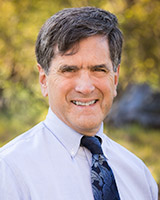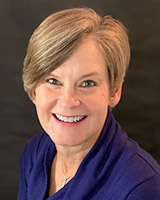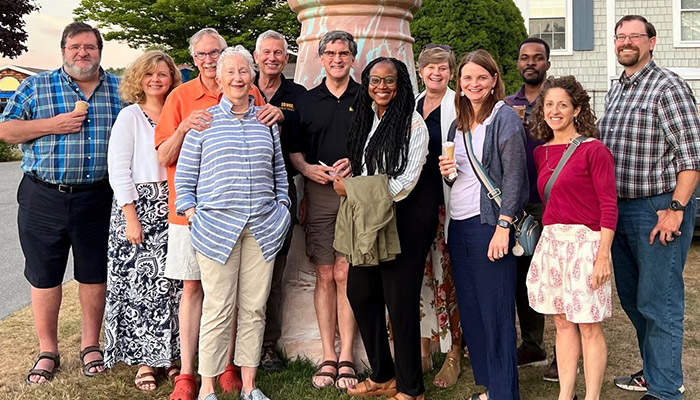Nov 13, 2024
For Analysis of the Rural Impacts of Health Policies and Proposals, Federal Lawmakers of All Stripes Look to This Expert Panel
At a U.S. Senate Finance Committee hearing on rural health and Medicare policy in May 2018, Dr. Keith Mueller — one of five expert witnesses called to testify — opened his remarks with a brief personal reflection. "While some things have changed in the 30 years I have been conducting rural health research and policy analysis, the underlying dynamics remain much the same," said Mueller, Professor of Health Management and Policy at the University of Iowa and longtime chair of the Rural Policy Research Institute (RUPRI) Health Panel.

He noted the endurance not only of certain fundamental questions — how best to support small hospitals and ensure access to healthcare for rural residents? — but also of key congressional leadership. "I have benefited from exchanges with this committee and others throughout [my career], starting with a conversation Senator [Pat] Roberts and I had when I testified as part of the RUPRI Health Panel, which I now chair, to the House Committee on Agriculture in 1993," said Mueller. "Senator Roberts may remember — and it looks like he does — sharing an appreciation for the straightforward analysis that we provided, which helped to give me the confidence to continue bringing forward the best we can offer from policy analysis."
Hours later, at the end of the hearing, Roberts remarked, "Dr. Mueller, let us see, it was 1993 that you testified before me, and now here it is 2018 — so I look forward to hearing from you in 2033, when I hope we have these things settled." It was a rare moment of levity in an otherwise heady and high-stakes discussion of Medicare reimbursement, rural health system design, and other complex policy issues.
But for Mueller, the exchange was also representative of something more significant. His earlier discussion with Roberts had taken place during a dramatic and polarized moment in the history of modern American health policy. Opposition had sprung up on multiple fronts to the Clinton administration's Health Security Act (HSA), a proposed bill that "would have been the equivalent of the Affordable Care Act in 1993," said Mueller.
The RUPRI Health Panel — consisting of six of the foremost rural health policy experts from across the country — had formed a year earlier, in response to a request from the Congressional Rural Caucus for an analysis of the rural impacts of the proposed legislation. The Panel's success in providing this initial analysis — completed over a brain-busting 48-hour period — led to further congressional requests as the debate progressed and alternate reform proposals began to emerge.
One such request came from the House Committee on Agriculture, inviting panelists to testify on the rural impacts of the latest iteration of the HSA, in addition to four competing proposals. "In that particular testimony, I got into a discussion with then-Representative Roberts, who disagreed with some of the Panel's analysis," recalled Mueller. "But he started by saying that he appreciated that we came in with recommendations, and not the typical academic, 'On the one hand this, on the other hand that.'"
I can't think of another entity that is like the Health Panel in terms of its influence, but also in terms of its productivity.
The continuation of this respectful yet substantive discussion years later at the 2018 hearing served as confirmation for Mueller that the Panel had succeeded in maintaining its trusted, nonpartisan reputation in an increasingly polarized city. While Roberts stepped down in January 2021 at the end of his fourth term in the Senate, the RUPRI Health Panel — which is celebrating the 30th anniversary of its founding this month — shows no signs of slowing.

"I can't think of another entity that is like the Health Panel in terms of its influence, but also in terms of its productivity," said Jocelyn Richgels, Director of National Policy Programs at RUPRI. "I think we would all love to be able to figure out a way to replicate this model in every particular policy area, but it's very difficult to do."
Panelist Timothy McBride, a Professor at Washington University in St. Louis, attributed this success to a history of unbiased policy analysis, in addition to widespread, bipartisan concern for the issues at hand: "What I like to tell my students is that when you go to Capitol Hill and start talking to staffers, they often turn first to discussing more partisan issues, but then they say, 'Okay, tell us how we can help the hospitals in our district' — because they all care about that."
The Making of a "Mini Think Tank"
Mueller remembers the early '90s as a time of emergence and excitement in the rural health research and advocacy worlds. The recently created Federal Office of Rural Health Policy offered a new voice for rural health within the Health Resources and Services Administration, while the National Rural Health Association, formed in 1987, was "beginning to move forward more aggressively as an advocacy organization."
Meanwhile, a bipartisan group of Senators representing agricultural states noticed a gap in the federal policy landscape. "They could see how organizations like the Urban Institute and others were providing nonpartisan analysis of policy impacts in urban areas, but no one was doing it for rural communities," said Mueller. In response, the Senators secured congressional funding to create RUPRI — the Health Panel's parent organization — now based at the University of Iowa.
It is accurate, to a certain extent, to think of RUPRI as "a mini think tank" dedicated to rural issues, said Mueller. However, he emphasized that its funding stream and staff are significantly smaller than well-known think tanks like the Brookings Institution or the Heritage Foundation; also, many think tanks — while nominally nonpartisan — advance an identifiable political agenda or are favored by certain ideological factions in Washington. But the basic premise — a group of subject matter experts who disseminate research and analysis to influence public policy — is the same.
In 1993, when RUPRI leadership received a request from the Congressional Rural Caucus for an analysis of the HSA, "they decided that the best way to approach that was with an expert panel," said Mueller. "When I was invited to join, I still remember them saying, 'We don't know whether we will do anything after this or not, but would you join us to at least come together for this particular task?'"

One thing led to another, and the Panel's archives now contain extensive analysis of every piece of major federal health legislation enacted over the past 30 years — from the development stage through the implementation and rulemaking processes. "What people may not realize is, when something like the Affordable Care Act passes, it takes 10 to 15 years to implement that," said McBride. Consequently, there is plenty of work to be done even in years when no major legislation is on the table. According to Mueller, the Panel submits multiple comment letters every year in response to notices of proposed federal rulemaking and requests from various congressional committees.
What people may not realize is, when something like the Affordable Care Act passes, it takes 10 to 15 years to implement that.
Over time, the Panel's work has expanded to include "bringing forward topics, issues, and priorities that we think need to find their way into policy," said panelist Jennifer Lundblad, CEO of Stratis Health, a nonprofit specializing in health improvement which has a longstanding organizational priority in rural health. For example, recent publications have offered recommendations on issues such as rural emergency medical services (EMS) policy and telehealth regulations.

Unlike the many advocacy organizations that publish briefs of a similar nature, the Panel is not beholden to the concerns of any particular industry or professional constituency. "What I like to say is that we advocate for rural people and their communities and care teams, but we don't advocate for doctors in quotation marks or hospitals in quotation marks," said panelist Clint MacKinney, Clinical Associate Professor at the University of Iowa College of Public Health. "Our views may align with some of those advocacy organizations, but the RUPRI Health Panel is purposefully distinct from them."
In the absence of any partisan or professional affiliation, the Panel has developed a theoretical framework — the High Performing Rural Health System — which Lundblad described as "our true north." The model weighs all potential policy impacts against an ideal rural health system supported by four "inter-connected pillars": access, affordability, community health, and quality.
While that may sound somewhat abstract, "the bottom line is, what is the impact on rural people, places, and healthcare providers?" said Mueller. "Regardless of what the policy is, we are always assessing those impacts, then conducting a fair, open-minded analysis."
Explore the Archives
Every year, the RUPRI Health Panel publishes a mix of policy briefs; comment letters; and longer, more comprehensive reports. Their annual work plan is determined through a consideration of current federal policy discussions, panelist expertise, and the priorities of funders — which have included, most recently, the Federal Office of Rural Health Policy and the Helmsley Charitable Trust. The following publications and excerpts offer a glimpse into the Panel's recent work:
- Policy Brief: State-Based Recommendations to Support Rural Ambulance Agencies (February 2023): "To ensure access to emergency medical services (EMS) for all rural residents, state legislatures should designate EMS as an essential service and provide a portion of the funding necessary to support the costs of maintaining essential service designations."
- Report: The Role of Telehealth in Achieving a High Performing Rural Health System: Priorities in a Post-Pandemic System (February 2023): "The optimal use of telehealth services beyond the COVID-19 pandemic will rely on maintaining and improving required infrastructure, laws, and regulations, particularly those governing reimbursement and licensing. These conditions require patient and provider buy-in, institutional acceptance by hospitals and practice plans, universal access to technology and high-quality broadband in both rural and urban areas, and legislation and policies facilitating long-term sustainability."
Visit the RUPRI Health Panel website to explore additional recent and historical publications.
"Graduate School on Steroids"
Because members are geographically dispersed, the Panel conducts its work through a mix of biweekly virtual meetings, frequent digital communication, and two to three in-person gatherings throughout each year. Multiple panelists characterized the work as intense, yet rewarding. "It's like graduate school on steroids," said panelist Alana Knudson, Director of the NORC Walsh Center for Rural Health Analysis. "It's this whole synergistic discussion, putting all these thoughts and ideas together, and what comes out of this deliberative process are some really remarkable pieces."

Lundblad recalled one of her first in-person meetings after joining the Panel in 2009. In the spring of 2010, after the Affordable Care Act was signed into law, the Panel holed up in a conference room at Washington University in St. Louis to assess the legislation in its final form. "It was days of studying and breaking out and taking that large policy document, hundreds and hundreds of pages, and distilling it to some clear, rural-focused interpretations and actionable next steps," said Lundblad. "It was just such an eye-opening experience for me, having never been part of anything quite like it before."
Panelists represent a wide range of disciplines — for example, McBride is an economist, MacKinney is a physician, and Mueller is a political scientist — contributing to the richness and intensity of the deliberations. Primary authorship for each publication is assigned based on expertise, and an initial draft is created with the assistance of graduate students at the University of Iowa.
Just visualize the six of us: We all have our laptops up, we all have furrowed brows, we're all writing together, sending each other links, deliberating back and forth…
After a draft is completed and circulated to panelists, more deliberation ensues. "Just visualize the six of us: We all have our laptops up, we all have furrowed brows, we're all writing together, sending each other links, deliberating back and forth, saying, 'Well, to be a contrarian on this…'" said Lundblad. "So it's this intense meeting, and I'm always both energized and exhausted at the end of our time together."
According to Mueller, all final recommendations represent the full consensus of the Panel. "If we don't reach consensus on an issue, we stay silent," he said. "This also helps us stay away from partisan leanings, because if one panelist says, 'No, I don't want to go there,' then we don't." After publication, Richgels, based in D.C., is tasked with outreach to policymakers and congressional staffers, from whom she also fields comment requests and informational inquiries.
The Panel's publications are just one part of a large constellation of inputs into the federal policy development process, so it can be hard to identify specific impacts or claim responsibility for legislative language. There are, however, exceptions to this rule — including instances where panelist expertise is requested directly by lawmakers and later reflected in policy proposals. Currently, a graduate research assistant is working to create a database of all instances over the past 30 years where the Panel's recommendations were later reflected in policy.
McBride recalled one example from 1997, during the development of the Balanced Budget Act. He had developed a simulation model that could predict how small changes in legislative language would affect Medicare coverage for rural residents, leading to numerous requests from congressional staffers. After responding to one particularly urgent request, "they said, 'Great, I just handed these numbers to the Senator and he is on his way to the floor to talk about them,'" said McBride. "I was like, wow — I guess I better turn on C-SPAN!"
Tangible impacts such as these are undoubtedly exciting. But at the end of the day, the Panel's goals are independent from the details of any particular legislation. "Our passion is to better inform policymakers," said Mueller. "How do we know we're successful? In my mind, we know we are successful because we continue to be asked for advice."

The RUPRI Health Panel — Past and Present
Current Members:
- Keith Mueller — Gerhard Hartman Professor in Health Management and Policy, University of Iowa; Director, Rural Policy Research Institute (RUPRI)
- Timothy McBride — Bernard Becker Professor, Washington University in St. Louis
- Clint MacKinney — Clinical Associate Professor, Department of Health Management and Policy, University of Iowa; Chief Medical Officer, Cibolo Rural Health Networks
- Jennifer Lundblad — President and CEO, Stratis Health
- Alva Ferdinand — Assistant Professor, Department of Health Policy and Management, Texas A&M School of Public Health; Director, Southwest Rural Health Research Center
- Alana Knudson — Director, NORC Walsh Center for Rural Health Analysis
Past Members: Sam Cordes, Chuck Fluharty, Pat Hart, Wayne Meyers, Bob Crittenden, Andy Coburn, Mary Wakefield, Becky Slifkin, Sidney Watson, Charlie Alfero, and Nancy Schoenberg.
